#mr oscar wilde
Text
Matthew coming home late, whispering to Mr. Oscar Wilde: Hi boy, I’m back.
Charlotte, spinning around in a chair: Hi back, I’m disappointed.
#me coming back to tumblr after a week of inactivity except to scream about the prologue and first chapter: I’m back#my life is a ✨mess✨#feeling like James at the start of chain of thorns ☹️#I wish Magnus and will were here lol#the last hours#tlh#incorrect last hours#matthew fairchild#charlotte fairchild#mr Oscar Wilde#chain of thorns#original: unknown
174 notes
·
View notes
Text
tessa and jem finding out that the "ghost dog" kit plays with sometimes is actually oscar:
#tessa herongraystairs#the shadowhunter chronicles#tsc#shadowhunters#tessa gray#jem carstairs#kit herondale#kit herongraystairs#james carstairs#tessa herondale#matthew fairchild#mr oscar wilde#oscar tsc#oscar the dog
18 notes
·
View notes
Text
and I smell the beginning of a beautiful friendship

#chain of thorns#alastair carstairs#mr oscar wilde#shadowhunters#cassandra clare#the last hours#tsc#tlh#the shadowhunter chronicles#chain of gold#chain of iron#ariadne bridgestock
103 notes
·
View notes
Text
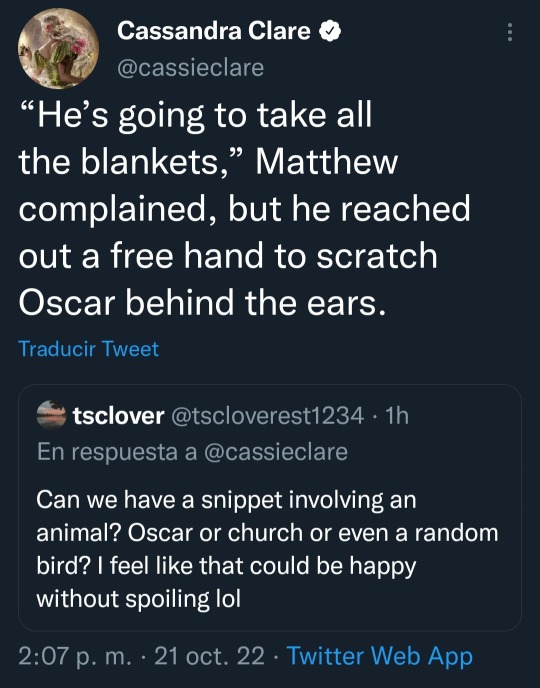

MATTHEW AND OSCAR CONTENT
MATTHEW AND OSCAR CONTENT
#I MOVED YALL#pls they're so cute#i'll do anything to see them happy#PLEASE#the last hours#shadowhunters#matthew fairchild my love#mr oscar wilde
6 notes
·
View notes
Text

I think about this a normal amount
#nothing in literature makes me go more feral than mr wilde#basil is so baby girl#I want someone to describe me to their friend like this#and history called them friends smh#Dorian gray#the picture of dorian gray#tpodg#dorian x basil#basil hallward#lord henry wotton#henry wotton#oscar wilde#gay#friendship#dps#poetry#literature#dead poets society#dark academia#quotes#write#anderperry#books#carpe diem#book memes#memes#gothic literature#gothic#lit memes
928 notes
·
View notes
Text

I will not elaborate
-
The template: X
#Shit post#bram stocker's dracula#Dracula#jekyll and hyde#the strange case of dr jekyll and mr hyde#frankenstein#victor frankenstein#mary shelley#sherlock holmes#arthur conan doyle#the picture of dorian gray#oscar wilde#the invisible man#hg wells#the phantom of the opera#poto#gaston leroux
446 notes
·
View notes
Text
Did anyone else's love of all things spooky start here, or is that just me?
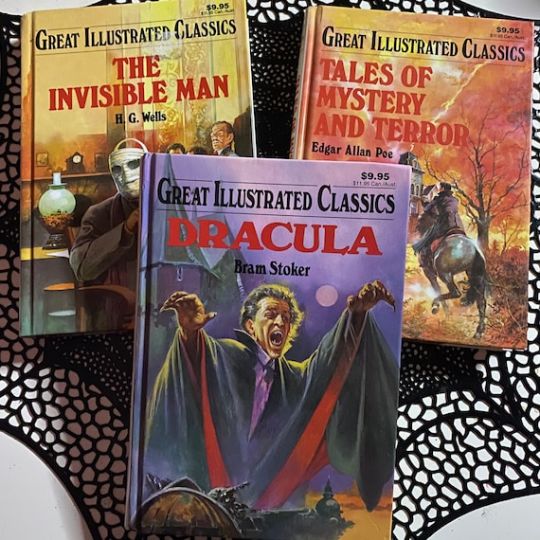
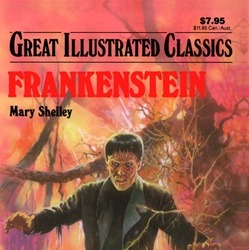

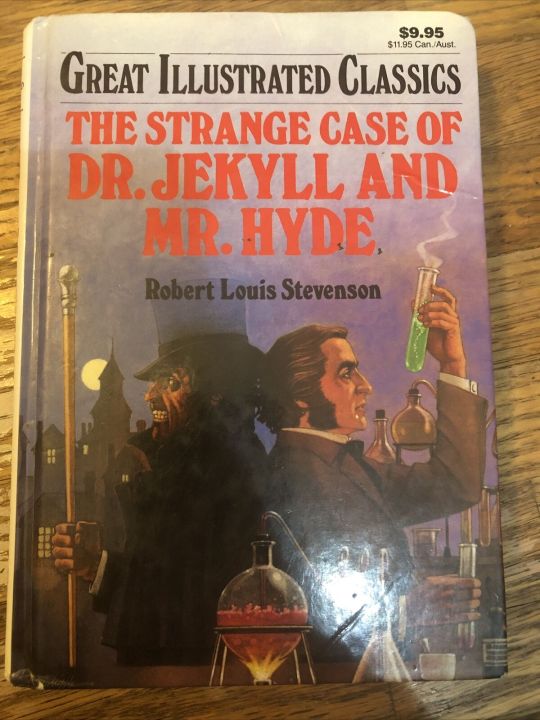
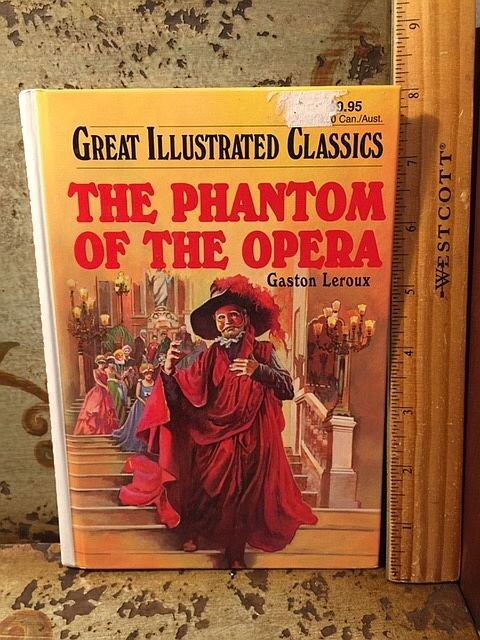
#i had all of these but also basically every other book this publisher had at the time#so i also blame them for my love of period pieces#nostalgia#books#reading#Dracula#Frankenstein#the picture of dorian gray#the phantom of the opera#the invisible man#edgar allan poe#dr jekyll and mr hyde#bram stoker#mary shelley#robert louis stevenson#hg wells#oscar wilde#literature#classic books#Halloween#classic horror#millennial shit#nostalgiacore#spooktober#spooky#classic lit memes#classic literature#classic lit#spoopy#halloween aesthetic
92 notes
·
View notes
Text
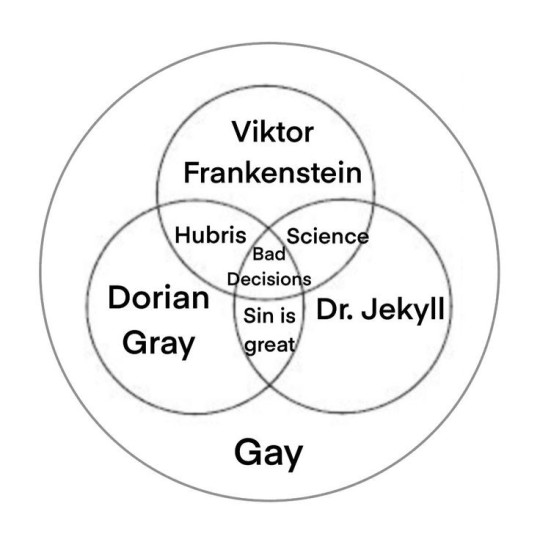
true,true,true
#dorian gray#dr jekyll and mr hyde#victor frankenstein#mary shelly's frankenstein#oscar wilde#robert louis stevenson#the strange case of dr jekyll and mr hyde
50 notes
·
View notes
Text
We need to talk about the Compromise Trope
Tl;DR It makes zero flipping sense because men always face a smaller social cost than women. You cannot force a powerful man to do anything, much less get married for life to someone he hates. And you wouldn’t actually want this trope to be true, because even if a man is forced to marry, he can just abandon or mistreat his wife. (This is a really long post)
Discussion of sexual assault and spousal abuse.
For those who don’t know, this is an extremely common trope in Jane Austen Fan Fiction/Regency romance. I don’t know where it originated, though there are two types of situations in Jane Austen’s works which are close. The basic premise is this: a man and woman are caught alone in a dark room/kissing (with full consent on both sides or not)/just hugging sometimes and a whole bunch of people scream and they are forced to get married.
Often both sides are unhappy with this marriage but it must happen, so they deal with it. This is the most common form of “Forced Marriage Situation” in the JAFF that I have read and heard about.
The two situations that come close are Lydia and Wickham’s elopement and then behaviour that has engaged honour in Pride & Prejudice, Sense & Sensibility, Mansfield Park, and Persuasion. With Lydia and Wickham, that wasn’t an innocent kiss in a library, they were living together and most likely having sex for a few days/weeks before Darcy got the whole situation figured out. However, Darcy did not try to force a marriage first, he actually tries to get Lydia away. What we can assume from this is that Darcy recognizes that marriage to a dishonorable man is worse than the blow to Lydia’s (and her family’s) reputation or life’s happiness.
Situations where honour is engaged but no actual touching has happened (as far as we know), are Jane/Bingley, Marianne/Willoughby, and Louisa/Wentworth. In each of these situations, a man and a woman act in such a way that people begin to assume that they are engaged. Word is spread abroad, and the men all absent themselves from the situation in the hopes that rumours will die down. Lastly we have Henry Crawford/Maria Bertram, who do touch in the context of a play and who are acting very flirtatiously even though Maria is engaged. Henry also pointedly quits the scene. Two of these men (or their friends) are trying to exit an engagement situation fairly, two of them are just ghosting because they don’t care.
But here is the problem with the trope: while a man may be honour-bound to propose if he’s been raising expectations, no one can force him. Mrs. Bennet and Mrs. Jennings both complain to the world that Jane and Marianne have been ill-used, but nothing comes of it! Bingley comes back eventually, but not because he’s “compromised” Jane and feels bad about it. Willoughby gets married to Miss Grey anyways and he doesn’t suffer that much socially (Sir John forgives him before the novel ends). Also, Willoughby seduced and impregnated Eliza Williams, which is way past “compromise”, and while it’s not clear how widely known this is, he is not shunned socially for that indiscretion either.
This is the whole problem with the trope: powerful men can survive far greater social disgrace than women!!! This is probably partially because women are expected to be virgins and men are not, but also because of the imbalance in marriage prospects. I imagine that a woman with £30,000 pounds could weather a scandal far better than someone like Eliza Williams. Men like Henry Crawford and Darcy would be basically bulletproof, or at least that is how they are portrayed.
Oscar Wilde spends a lot of time on this imbalance of consequences (especially in A Woman of No Importance) and his conclusion is that men can basically get away with anything while women, and sometimes their children, bear the full brunt of social cost. We still see this today! It’s the woman who most often bears the consequences for getting pregnant as a teen, for example, and the largest blow to their future prospects.
In the only “compromise” I’ve read in a contemporary novel, Molly in Wives & Daughters (written in 1866) is caught giving Mr. Preston a letter and meeting with him clandestinely. What happens is nothing like the JAFF compromise trope. Molly’s reputation is trashed, but Mr. Preston is certainly not forced to marry her, people just talk about how they will probably marry. Molly is the one who bears almost the entire social cost, Mr. Preston isn’t even that worried about it until his employer gets involved. He is only a steward and could be held accountable by a higher up, people like Darcy and Crawford have no one who could do the same thing.
Another thing I see now which is just wild is Caroline trying to sneak in Darcy’s room at night. I don’t know how that is supposed to make a “compromise” since there are no witnesses, but also, that is incredibly dumb. A man as powerful as Darcy could have full on sex with a woman and deny it and probably face almost no backlash. Especially since Caroline would have no proof. I mean she can’t get a DNA test in this era and once she admits she’s had sex it could have been with a footman.
And you say, but Darcy is honourable? Sure, but this woman threw herself at him without consent! I am sure he wouldn’t have sex with Caroline without marrying her, but if she started kissing him and then people demanded they marry? It would be perfectly moral for him to throw her under the bus. And then Caroline’s reputation is destroyed and she gains nothing.
The fact is, if “compromise” was a real thing, it would be gamed. Humans will take any loophole and widen it until you can drive a truck through it. All of the nobility would be married by women throwing themselves at them, here, I wrote a farce about it.
If anything, the “compromise” trope is a fantasy where men are actually held accountable for violating women. Which seems like it would be nice, but considering that some women, especially Caroline, weaponize “compromise”, you start to border on some disturbing territory. Like the idea that women who accuse famous people of rape are just doing it for attention/wealth. And that is not great! That is something we also still struggle with today.
The only way “compromise” works as it is presented is if someone more powerful than the man involved forces him to marry. So for example, a father threatens to cut off his son’s allowance or disinherit him, like Mrs. Smith in Sense & Sensibility. However, even married a man isn’t “trapped”, he can just leave his wife behind and fuck off to Italy. Which is literally the plot of All's Well That Ends Well by William Shakespeare, in which the king forces a man to marry. This happens in Jane Austen too! Wickham just goes to London and Bath to enjoy himself and leaves Lydia with her family. Or if you’d like real world examples: Percy Shelley and Lord Byron. Also Jane Eyre now that I think about it...
But that’s not even the worst that could happen! In Mrs. Hubback’s The Younger Sister, (a completion of the novel fragment The Watsons by Jane Austen) which was written in 1850, we have this chilling exchange about a man forced to marry:
"Ah, I am glad I have brought you to your senses, at last; now consider, if we could do as Emma advises, and persuade this Mr. Musgrove to marry, as he ought, there would be an end of all trouble in the affair."
"To you, perhaps, but not to Miss Margaret; I dare say her amiable husband would beat her every day."
This situation was a bit different, they were suing for breach of contract because Mr. Musgrove proposed to Margaret and then pretended he hadn’t. Two women overheard the proposal and would have been able to testify in court against Mr. Musgrove. This was a real thing and could either result in restitution payments or marriage. However, you couldn’t sue for breach of contract over a kiss or a “compromise”, you needed proof of engagement. The real cases I have seen involved publicly known engagements, or letters and tokens of affection (think Lucy Steele in Sense & Sensibility) So again, not “compromise.”
The point though is that a man being forced to marry a woman could abuse her without much repercussion. In JAFF/Historical romance it always works out, but in real life I can see someone being pretty resentful that they were forced to get married and taking it out on the other party.
Also, the entire concept of a man trapped in an engagement and unable to get out because of their reputation/honour is kind of laughable because that’s why breach of contract laws exist! And women, who were technically “allowed” to back out, faced pressure to marry:
“But after a certain time—after the world suspects that two people are engaged to each other, it is scarcely possible for the woman to recede: when they come within a certain distance, they are pressed to unite, by the irresistible force of external circumstances. A woman is too often reduced to this dilemma: either she must marry a man she does not love, or she must be blamed by the world—either she must sacrifice a portion of her reputation, or the whole of her happiness.” (Belinda Ch 18, Maria Edgeworth)
So again, the social burden is carried by women
(Brief note about Edward Ferrars, he is trying to honour his promise to Lucy Steele and is “trapped” in an engagement, but he made that proposal of his own free will. His family would clearly have supported him in a breach of promise suit so he could marry Miss Morton. Lucy only has a hold on Edward because he’s too honourable to jilt her.)
Lastly, duels. I know almost nothing about duels but they just sound profoundly stupid to me. The only duel we see in Jane Austen is between Colonel Brandon and Willoughby, they are both unwounded and go home quietly. I don’t know what duels are supposed to solve, if Colonel Brandon had killed Willoughby he probably would have gone to jail/been hung (I don’t know if he’s rich enough to get away with it). So if he wins, Eliza is screwed, if he loses, Eliza is screwed, there is really no good outcome.
Mrs. Bennet wants Mr. Bennet to fight Wickham, but to what end? If Mr. Bennet killed Wickham, then Lydia isn’t un-ruined? So what is the point? I guess maybe the man agrees to marry your daughter rather than face death? It just seems like pointless drama to me. I don’t think I’ve ever heard of a duel with a good outcome, illuminate me in the comments/reblogs if you have.
Here is what I imagine is a more realistic scene of “compromise”: A man and woman are making out, some people burst into the library! Social pressure mounts for the couple to marry, but the guy isn’t interested. He goes to Italy for fun, leaving the girl to bear the full brunt of slut shaming and reputation damage.
Five years later, the man returns and is invited back into society. The girl is unmarried and unmarriageable, perhaps banished by her family to some cottage. Or she stuck it out and hoped people would forgive a youthful lapse of propriety, was she rich and pretty enough to get over the stigma? One can only hope.
Now specifically in Pride & Prejudice variations:
There are some cases where Darcy doesn’t like Elizabeth and is mad that he has to marry her. I just don’t think those would happen. After all, he encourages Bingley to leave Jane while there is still wiggle room, I think he’d just leave and hope for the best. He might even pay a breach of contract fine, after all, if he marries a woman he hates or distrusts, that’s the rest of his life and the reputation of Pemberley forever. Paying a fine and waiting for people to forget would hardly hurt him. And he probably wouldn’t think it was morally wrong if he suspected that Elizabeth did it on purpose to try and trap him.
There are other situations where Darcy is happy to marry Elizabeth but she hates him. These may also not result in marriage because Elizabeth is pretty big on not marrying people she does not love for social gain. I mean especially a man who just sexually assaulted her! If she thinks as poorly of him as she does canonically at Hunsford, I can’t see her saying yes. After all, now not only is Darcy someone she dislikes, he just proved he isn’t trustworthy or capable of self control.
Also, there are way too many variations where despite hating Darcy, Elizabeth is totally into the kiss. Which is so weird to me! If someone I hated kissed me they would be slapped! I doubt people are going to be screaming for Elizabeth to marry someone who assaulted her, they’d probably be angry at Darcy.
Lastly, Caroline Bingley. She is trying to compromise Darcy but sometimes ends up in a compromise marriage herself. Now she is actually rich and has a very caring brother. I cannot see her doing something like actually marrying Wickham or Mr. Collins. She could probably survive the reputation damage because of her large fortune or live on her dowry. After all, Darcy has told her Wickham can’t be trusted. It would be dangerous for her to agree to marry him.
Basically, I think any compromise situation in Pride & Prejudice is out of character. If one really wants Darcy and Elizabeth married pre-understanding and reformation arc, I would suggest placing Elizabeth in reduced financial circumstances, like Mr. Bennet dying. Otherwise, you need to significantly change the characters of both Elizabeth and Darcy.
#wives and daughters#elizabeth gaskell#The Younger Sister#mrs. hubback#oscar wilde#compromise trope#historical romance#jane austen fan fiction#JAFF#pride and prejudice variations#pride and prejudice#jane austen#long post#and kind of rambling#I hope I made my point#a woman of no importance
111 notes
·
View notes
Text
the interconnection and web of queer poet's in the late 1800s amazes me so much like there's this notion of queer people always gravitating towards queer people and i feel like that network is very true to that statement. Cause like. oscar wilde was dating lord alfred douglas who married this bisexual poet who was with this lesbian poet for a while like you cannot tell me there was no secret society of queer people at that time. I mean, obviously there were but the evidence to support that is so satisfying as you read about all these queer people that existed in a time where they 'weren't supposed to' and just found their way to each other against all odds.
#yet even when queerness is accepted i still dont have a girlfriend#how did mr wilde get a bf when it was literally illegal#lgbtq#queer#gay#lesbian#bisexual#poetry#oscar wilde#lord alfred douglas
15 notes
·
View notes
Text
when robert louis stevenson said “all human beings, as we meet them, are commingled out of good and evil” and when oscar wilde said “each of us has heaven and hell in him”
#robert louis stevenson#oscar wilde#the strange case of dr. jekyll and mr. hyde#the picture of dorian gray
159 notes
·
View notes
Text
I have come to realize that I really only like classic books. Like i have read a Picture of Dorian gray. Frankenstine. The strange case of Dr. Jekyll and Mr.Hyde. dracula. Etc and really really enjoyed them but I just can't seem to like more modern books
#dr. jekyll and mr. hyde#the strange case of dr jekyll and mr hyde#dracula#bram stroker#mary shelley#frankenstein#victor frankenstein#the picture of dorian gray#oscar wilde#books#why am i like this#??? idk
72 notes
·
View notes
Text
what if Steve & Bucky just refused to adapt to modern fashion at all and became like those dapper fashion-history nerds who dress in the 1940s style 😅
#stucky#talented mr ripley 'here to queerly fuck up yo country club' vibes#I'm talking high waisted pants ONLY#FISHTAIL SUSPENDERS#everything buttoned nothing zipped#WAISTCOATS#bucky in steel-toed spats#but keeping the long hair oscar wilde style#release the cracken
228 notes
·
View notes
Text

flipping through my Dorian gray annotations is a new kind of pain
#if Dorian is in hell and Basil is in heaven then they really did never get to be together#WHY WOULD I WRITE THIS#WHY WOULD ANYONE WRITE THIS#mr Wilde you made me feel things and I hate you for it#tpodg#the picture of dorian gray#dorian gray#basil hallward#lord henry wotton#oscar wilde#dorian x basil#dark academia#literature#poetry#dead poets society#quotes#books
61 notes
·
View notes
Text
(talking about a taciturn man who has done nothing but be a complete asshole throughout 90% of the book) he’s my babygirl
#literature#literary memes#classic literature#jane austen#classical literature#pride and prejudice#charlotte bronte#emily bronte#wuthering heights#jane eyre#frankenstein#mary shelley#mr rochester#shakespeare#william shakespeare#oscar wilde#the picture of dorian gray#literature memes
213 notes
·
View notes
Text
i don't really put romantic labels on aziraphale because i think he's just into whatever tf crowley is doing
#or oscar wilde#apparently#good omens#ineffable husbands#ineffable idiots#crowley#anthony j crowley#aziracrow#mr a. z. fell#aziraphale#go2
26 notes
·
View notes